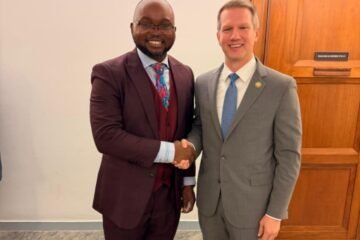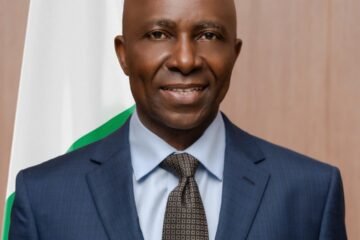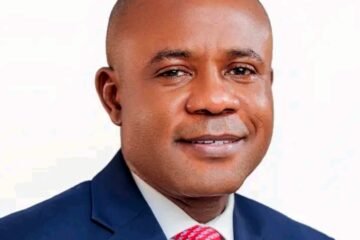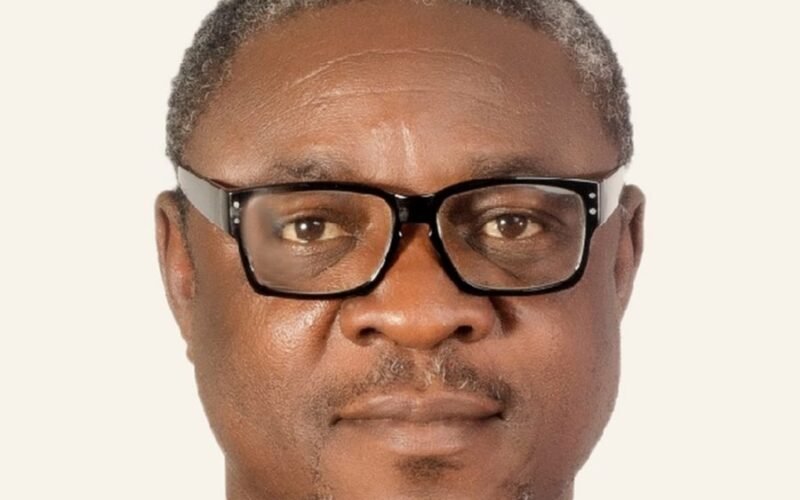By SHEDDY OZOENE
When Chief Uche Nnaji tendered his resignation last week as Nigeria’s Minister of Innovation, Science and Technology, it brought a painful but predictable end to a once-promising political career.
The announcement, made in a statement from the Office of the Secretary to the Government of the Federation, came after weeks of damning revelations, public denials, and frantic attempts at damage control.
For many who have watched Nnaji’s career over the years, the scandal was not a bolt from the blue; it was a slow-motion fall that had been long in the making.
Chief Uche Geoffrey Nnaji, popularly known as “Nwakaibie,” began his public life with the aura of a rising star. A businessman and politician from Akpugo in Enugu State, he first came to national prominence in 1999 when he was elected to the Senate under the Alliance for Democracy (AD). He would eventually yield the position in circumstances that portrayed him as someone’s lap dog.
Over the years, Nnaji’s political loyalties shifted as often as the seasons. He floated between parties — from the People’s Democratic Party (PDP) to the All Progressives Congress (APC) — always appearing where the wind of power blew strongest.
In 2023, he emerged as the APC governorship candidate for Enugu State, though his performance at the polls was dismal. Still, his loyalty to the party’s national leadership earned him a ministerial nomination when President Bola Tinubu announced his first cabinet.
It was, for Nnaji, a political resurrection — an opportunity to reinvent himself as a national figure and shake off the whispers about his past. But beneath the polished image of a reform-minded technocrat, something dark was lurking in the corner.
The beginning of the end came with a report published by Premium Times on October 5, 2025. The investigative newspaper revealed that Nnaji’s purported academic certificate from the University of Nigeria, Nsukka (UNN) was a forgery. According to the report, Premium Times had been investigating the authenticity of the certificate for nearly two years, following multiple tips and inconsistencies noticed in Nnaji’s academic claims.
The newspaper said it had made repeated inquiries to UNN, asking the institution to confirm whether Nnaji graduated as claimed in 1985. The response from the university was at first hazy and a bit ambiguous. On such a matter, respectable universities don’t speak tongue-in-cheek, so the online newspaper persisted. Eventually, the Vice Chancellor, Professor Simeon Ortuanya, confirmed that there was no record of Nnaji ever completing a degree programme at the university.
According to him, the certificate he flaunted was not issued by them. The University further disclosed that Nnaji had indeed been a student but failed a crucial course that prevented him from graduating.
The revelation was a bombshell. Nigerians, already weary of scandals involving public officials, were enraged that a sitting Minister had allegedly forged a degree certificate to secure his position.
The outrage was compounded by the fact that Nnaji was also parading a National Youth Service Corps (NYSC) discharge certificate — a document that is only issued to genuine graduates.
As the scandal gathered steam, Nnaji initially adopted a defiant posture. In a series of statements released through his aides, he accused Premium Times of blackmail and “politically motivated journalism.” He insisted that his certificate was genuine and promised to make “irrefutable evidence” public.
However, when he finally convened a press conference in Abuja to “set the record straight,” he curiously failed to show up. Instead, he delegated the task to a little-known associate, Mr. Robert Okpara, who struggled to explain the inconsistencies in Nnaji’s academic records. Okpara waved documents before reporters but could not convincingly explain how the University of Nigeria could have disowned a certificate supposedly issued by it.
The press briefing, meant to exonerate the Minister, ended up amplifying the scandal.
The Presidency was said to be livid. Understandably so for the Tinubu administration, already battling credibility crises in other sectors. It could ill afford another avoidable embarrassment.
Sources close to the Villa revealed that President Tinubu may have personally asked Nnaji to “step aside quietly” to avoid a public dismissal that would have compounded the scandal.
The tragedy of Uche Nnaji’s fall lies not only in the scandal itself but in the squandered potential it represents. Here was a man who had enjoyed the advantage of early political exposure, the grace of national relevance and who had ample time to correct whatever deficiencies existed in his academic records. The University, like most institutions, offers opportunities to retake particular failed course. Instead, he chose the shortcut — the deceitful path of forgery and pretense.
For a politician who once dreamed of leading Enugu State as governor, Nnaji’s conduct reflects a deep moral failure and an absence of personal discipline.
His disgrace does not only stain his name; it reinforces the public cynicism that Nigerian politics is a haven for fraudsters and opportunists. It also exposes the laxity in the nation’s vetting processes — how a man could rise to ministerial level without proper verification of his credentials.
Nnaji’s downfall should serve as a wake-up call for Nigeria’s political class. The culture of impunity that allows people to falsify records and still attain high office must end. It also underscores the importance of investigative journalism in holding public officials accountable. Without the dogged work of Premium Times, Nnaji’s deception might have gone unnoticed.
In the end, Chief Uche Nnaji’s resignation was not just the fall of one man but a story of how ambition, when not guided by integrity, inevitably leads to self-destruction.
*Sheddy Ozoene is Editor-In-Chief of People&Politics, Nigeria’s leading publication on people, politics and policy.


















